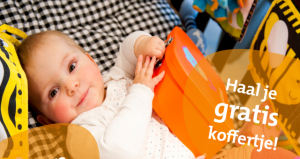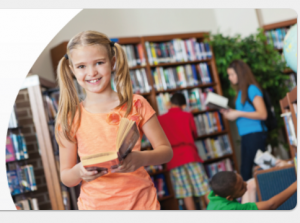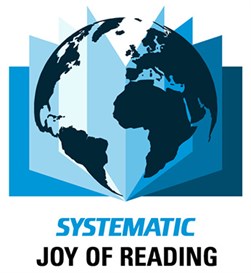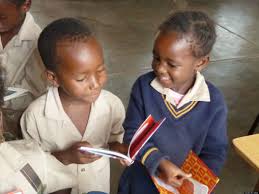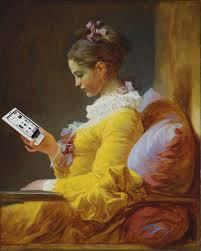Guest Blogger: Adriaan Langendonk, programme coordinator Reading Promotion Art of Reading (Dutch Reading Foundation and the National Library of the Netherlands).
On 1 January 2015, a new Library Act was introduced in the Netherlands. One of the five core functions of libraries, as set out in the Act, is the promotion of reading and providing an introduction to literature. Another section of the Act stipulates that public libraries should support local education. This Act implements these goals for the target group of young people (0 to 18 years old).
Public libraries in The Netherlands have been working closely with educational institutions to promote reading for many years and several national programmes have been developed. Examples of these are the Children’s Book Week, started in 1955, and the National Read Aloud Contest, which recently celebrated its 23rd anniversary.
The Dutch Reading Foundation and public libraries have been working on this since 2008 on a broad and permanent basis, and issued a programme called The Art of Reading. This programme is carried out by The Reading Foundation and The National Library. The Art of Reading (funded by the Ministry of Education, Culture and Science) stimulates reading aloud, free voluntary reading and information literacy for children up to the age of 18 years. The Art of Reading programme consists of three programmes: BookStart, The Library at School and strategic reading promotion networks.
There is attention to reading to children and reading in children’s free time. This is embedded in preschool and primary schools, which enhances the child’s language skills and helps children develop a larger vocabulary.
Count on skills and the Reading Coalition
Approximately 1.3 million residents of the Netherlands between the ages of 16 and 65 have low literacy skills. They struggle to read, write and communicate in the Dutch language. Despite the efforts made by many parties, the number of people with low literacy skills has not decreased in recent years and has even increased among a number of groups.
The new ‘Tel mee met Taal’ (Count on Skills) action programme is the response, with which the Dutch Ministry of Education, Culture and Science, the Ministry of Health, Welfare and Sport, and the Ministry of Social Affairs and Employment will jointly prevent people with limited literacy skills becoming marginalised. The programme will create synergy by linking various fields in which language plays a role: at school, in libraries and community centres, but also in social neighborhood teams, the debt assistance scheme, early school leaving, (re-)integration, youth social services and income support departments. Count on Skills will focus on three domains (family, employment market and healthcare) and five action lines .
The Art of Reading and The Ongoing Reading Line
Following the example of the Ongoing Learning Line of educational systems, the Dutch Reading Foundation developed The Ongoing Reading Line 0-18, that sets out its vision with regard to the promotion of reading and educative literature. The Art of Reading (BookStart and The Library at School) ensures that all children and adolescents familiarise themselves with books by linking up with the activities of the Ongoing Reading Line, which aims at promoting reading, and with national reading programmes. It also ensures that they do not experience difficulties when switching from preschool to primary school or from primary to secondary school.
Libraries work together with healthcare centres, maternity care and day-care centres, schools and bookshops. Good collaboration with local government is also essential. Local authorities wish to check that their policies and funding can be aligned with this programme run by the library.
The programmes consist of several building blocks (network and policy, expertise, collection, reading plan, digital platform, transport and funding) some of which are the responsibility of the library and others of the school or preschool. The school enters into a contract in which it pays a fixed price per pupil and acquires a library, trained staff, two to four hours of professional support by a reading consultant from the library, a collection of three to five books per pupil, activities etc.
By setting up a strategic network centred around the library, involving politicians, stakeholders from day-care centres, healthcare organisations, cultural organisations (including bookshops and publishers) and educational institutions, the programmes are embedded in policy much better and can be funded easier. The laissez-faire approach that previously characterised collaboration in relation to the promotion of reading has consequently disappeared.
BookStart in the Netherlands
BookStart promotes early reading, storytelling and the reading of nursery rhymes to very young children. It also enables parents and children to experience the pleasure of reading books together. It gives young children a jump-start in primary school and strengthens the bond between parents and children.
Scientific research into the effects of the Dutch BookStart programme has shown that:
- more parents start reading to their children at an early age;
- if parents read to their babies before they reach the age of eight months, the babies develop into children that achieve better results in the area of language skills;
- the effects are even stronger in the longer term;
- overactive babies benefit most from the programme;
- parents visit the library more often and are more familiar with baby books.
One out of three parents takes up the invitation to go to the library, registers their baby, and collects a small suitcase containing two baby books and information on reading. Of all libraries in the Netherlands, 99% takes part in this national programme.
BookStart in day-care centres also focuses on toddlers in playgrounds and other institutions. In early 2016, 123 library organisations (79%) were participating together with over 1200 (13%) day-care centres.
Six elements are important in this regard:
- an attractive reading place is created together with the library;
- a good collection of suitable books for babies and toddlers is provided (including ebooks);
- the expertise of staff is increased through training;
- involving parents, so that reading aloud at home occurs more often and so that they become familiar with the opportunities offered by the library;
- reading gets a fixed place in the daily routine through the Reading Plan included in the organisations’ policy;
- cooperation takes place with partners through a reading promotion network (local municipality, healthcare, library and day-care centres).
The Library at School
The Library at School programme started in 2009 to promote reading and to professionalise the approach to reading within Dutch primary schools. Of all 155 library organisations, 135 (87%) participate in this programme, involving nearly 3000 primary schools. This is over 45% of the 6500 primary schools in the Netherlands.
Libraries and schools are working on a permanent basis on the improvement of language skills and the promotion of the reading and media skills of children 4-12 years of age. The aim is to encourage children to read more, both at school and during their leisure time at home. Only then will the positive effect of reading on the motivation to read and develop language skills really be improved.
As part of the The Library at School programme, the primary school and library sign a contract for several years in which they agree to work together on:
- developing a joint policy in relation to reading at school and in the library;
- providing an up-to-date and attractive collection, which enriches reading education;
- providing books and other materials that can be taken home;
- displaying books with their covers fully visible on movable bookshelves;
- providing a reading consultant affiliated to the library to assist the school’s reading coordinator;
- setting annual targets based on monitored results;
- specifying all the activities in an annual reading and media plan;
- providing a digital portal which helps with searches and the registration of materials, stimulates reading, keeps track of reading history and assists with finding reliable information.
An academic report on the results and effects of The Library at School has shown positive results in terms of stimulating the development of reading skills. All pupils at schools that take part show improvement in language skills when compared to schools that do not take part. Girls show the greatest positive effects. Not only do their language skills improve but their motivation to read during their leisure time also improves (Nielen & Bus, 2013).
The Library at School is also available for secondary schools.
More information (in English) on the Art of Reading:

